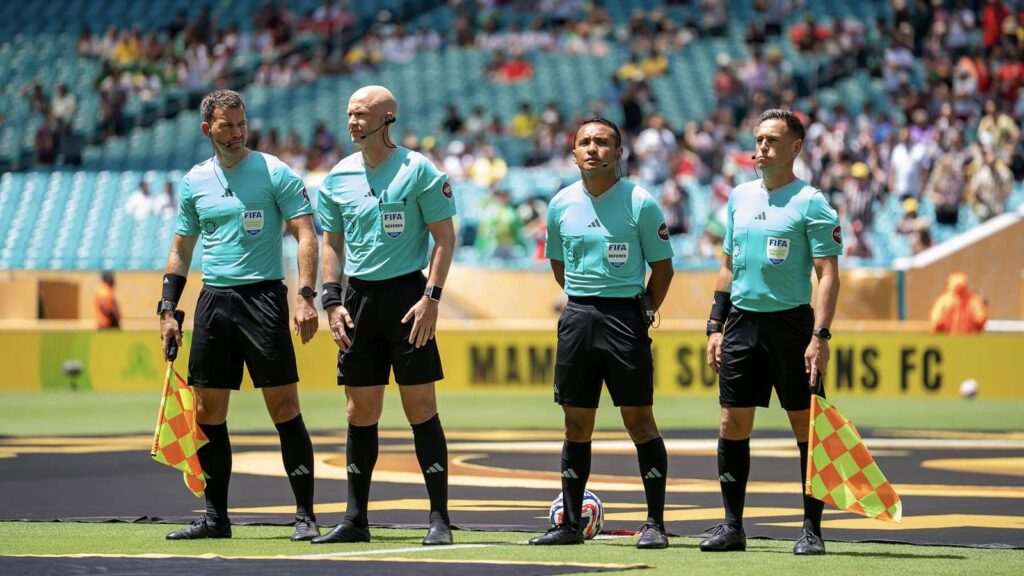The Fourth Official is an essential role to make sure everything goes smoothly during a match in modern football. The fourth official’s duties are vital in ensuring that the game flows well and sideline discipline is upheld. This article looks into the history of the fourth official, their general functions and how the role was traditionally seen.
Who Is the Fourth Official?
The fourth official is a teammate of the referees. They’re momentarily installed to help the main referee and his assistants during a football match. The fourth official sits between the two benches of the teams, along the halfway line. He oversees activities off the pitch and gives a hand wherever needed to the officials on the pitch. This means that the fourth official indeed has an administrative role. It extends to assisting in maintaining discipline and order during the match.
The fourth official is usually set on the sideline, between the technical areas of both teams. Although they stay near the touchline, the Laws of the Game do not specify an exact location. These officials become especially more important in major full-fledged international competitions. The fourth official is sort of an extra set of eyes and ears, to aid the referee in the effective management of the match.

Key Responsibilities of the Fourth Official
There are several important roles the fourth official carries out to ensure that everything is kept fair and in order. These duties mostly concern administrative tasks away from the pitch, such as communication with coaches and players on the sidelines. The main duties of a fourth official include:
1. Managing Substitutions
One of the most visible duties presented to a fourth official during the match is managing substitutions. They need to check the substitution cards handed to them by the coaches. They ensure that the correct player numbers are shown on the electronic board and signal the substitutions to the referee.
Sometimes, players being substituted might not leave the field properly, or the substituted player might enter without permission. These may cause trouble for the referee and interrupt the flow of the game. It’s the fourth official’s job to prevent them.
2. Presenting Added Time
At the closing stages of each half, the fourth official lifts up the electronic board, declaring the number of minutes of stoppage or added time. This added time serves to compensate for stoppages such as injuries, substitutions or time-wasting.
The referee decides the exact amount of time to be added, and the fourth official communicates it to players, coaches and spectators. This simple act helps everyone in the stadium know how much more time will be played.
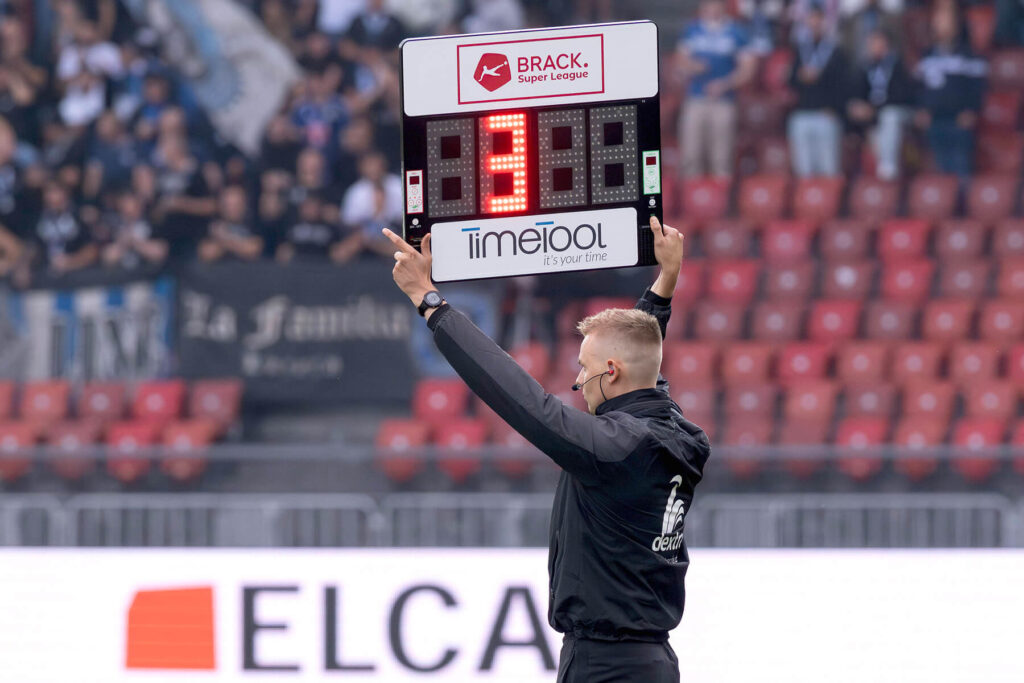
3. Monitoring Technical Areas
The fourth official monitors the technical areas, where the team coaches and substitutes are located. They ensure that only authorized personnel are in these areas and that coaches behave properly during the match.
If a coach behaves aggressively or argues too much with match officials, the fourth official can alert the main referee. The main referee can then issue warnings or disciplinary action such as yellow or red cards.
4. Mediating Between Benches
Tensions often rise during football matches, especially in closely contested games. The fourth official acts as a mediator between the two benches. They help calm the emotions and resolve minor disputes before they escalate. The fourth official helps the match proceed without unnecessary interruptions or conflicts.
5. Assisting with Equipment and Player Checks
Before and during the match, the fourth official may assist in checking players’ equipment to ensure it meets the rules. They may also help in replacing match balls if needed and check the condition of players coming on as substitutes.
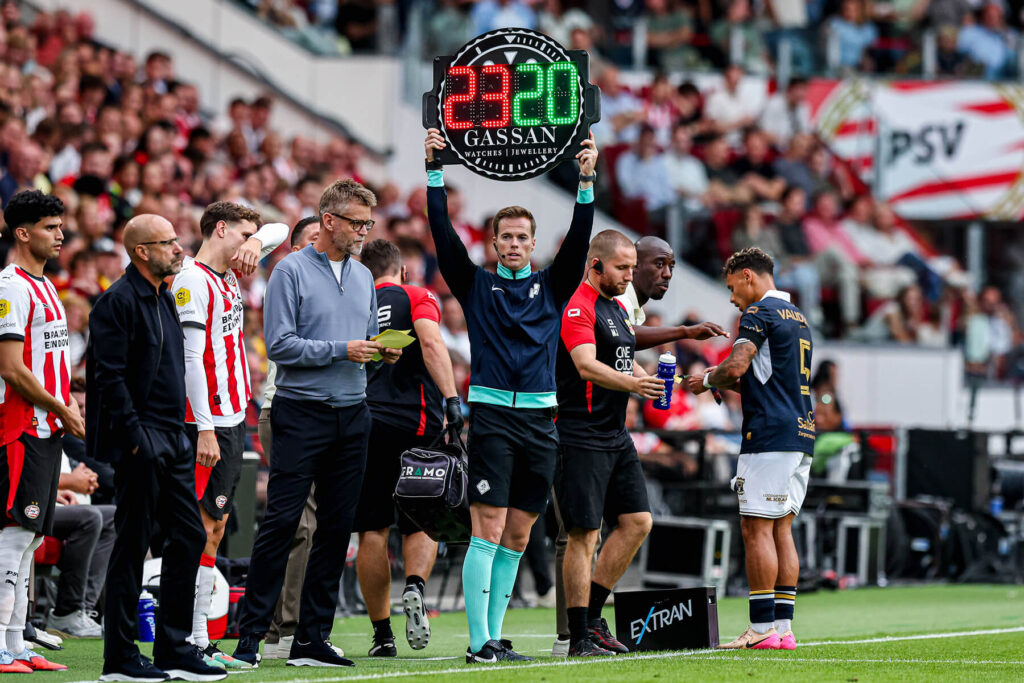
6. Communicating with the Referee
The fourth official is connected to the refereeing team through headsets or microphones. They can provide information to the main referee about incidents that happened off the ball or on the sidelines, such as misconduct by coaching staff.
The fourth official does not make decisions about goals, fouls, or penalties. But, they help the referee by providing useful information when required.
7. Overseeing the Match Environment
The fourth official is responsible for overseeing the general organization of the match. This includes checking the substitution boards, match balls and ensuring teams follow regulations. They also communicate with stadium officials, security personnel, and medical teams when required.
In some competitions, if the referee or assistant referee is injured and unable to continue, the fourth official is next in line to take over officiating duties on the field.
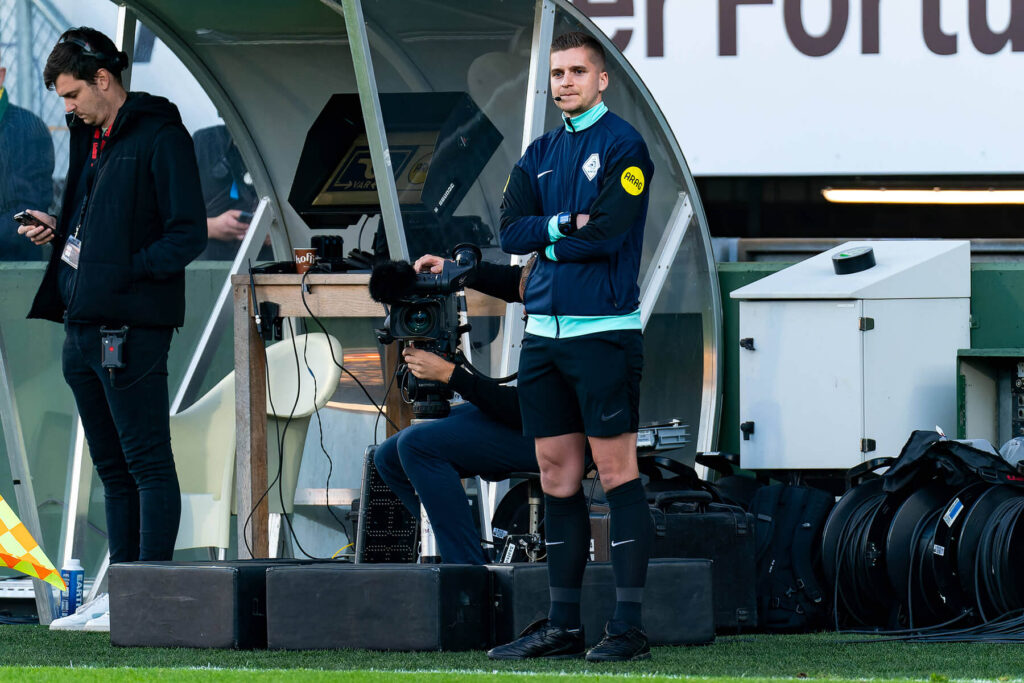
Influence on Match Flow
The fourth official plays a key role in maintaining the flow and fairness of the match. They handle substitutions quickly and prevent confrontations on the benches. They also manage added time, reducing unnecessary delays.
This allows the main referee to focus fully on the game, knowing the administrative side is taken care of. The fourth official also acts as an important communication channel between the teams and the referees. This improves transparency during the match.
Emotions run high, especially in high-pressure games. The presence of the fourth official ensures smoother match management . Even though they do not blow the whistle or make on-field decisions, their influence is felt in every professional football match.
Evolution of the Fourth Official’s Role
The evolution of the fourth official’s role has been great throughout the years. The early days of football had matches run by only one referee and two linesmen (now referred to as assistant referees). As the pace grew up and with more competitiveness came the need for added support beyond the pitch.
Late in the 20th century, the fourth official was introduced to bring much-needed order to match administration. At first, the fourth official limited himself to substitutions and equipment control. With the modernization of football, fourth officials assumed match control responsibilities. This covers overseeing the benches and monitoring added time.
In certain competitions, they work in tandem with Video Assistant Referees (VAR). The officials for VAR remain separate from the fourth official. However, both co-operate in holding up the central referee for decision-making. High-profile events, like the FIFA World Cup, also have reserve officials. It could be a fifth official or standby assistant referees.
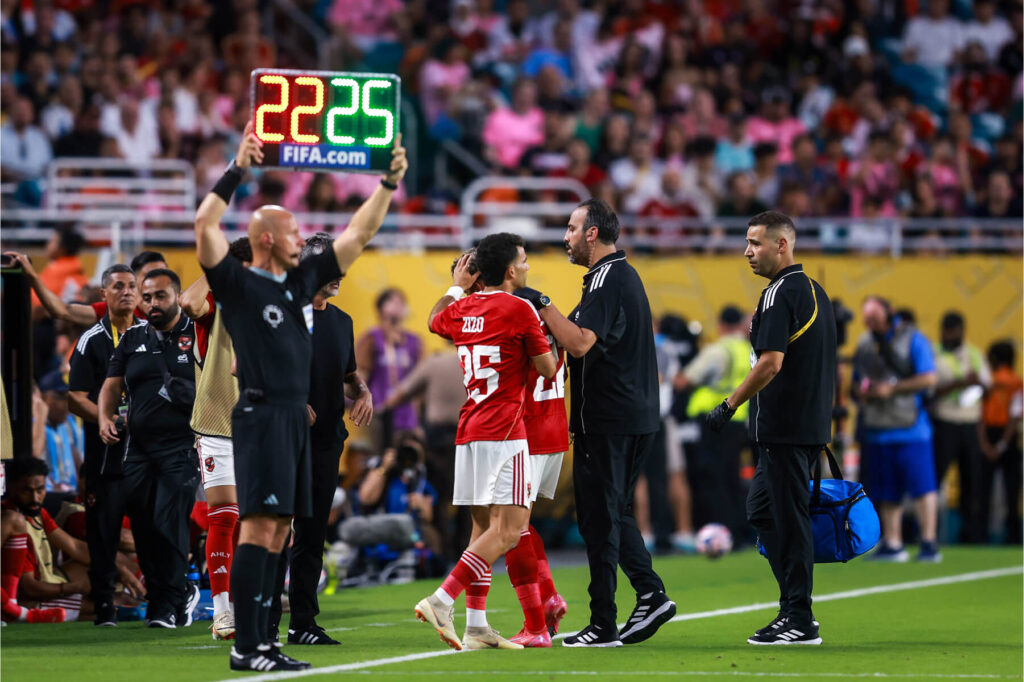
Why the Fourth Official Is Essential in Modern Football
The fourth official is a key part of the refereeing team in modern football. Their role focuses on managing the sidelines, handling substitutions, tracking added time, monitoring coaches, and supporting the main referee in controlling the game.
While they do not make decisions on goals or fouls, their influence is crucial in maintaining order and ensuring a smooth match flow. Over time, the role has grown in importance, becoming an essential part of professional football.
As the sport continues to evolve, the fourth official remains a vital figure in promoting fair play, discipline, and efficiency on matchdays.
